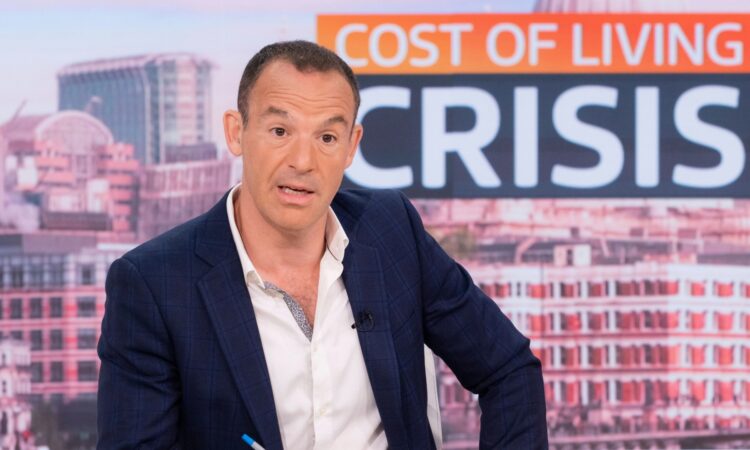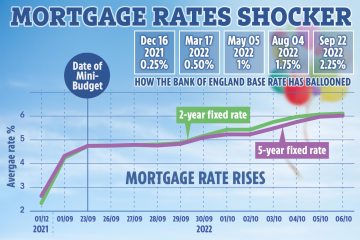
MARTIN Lewis has revealed whether or not homeowners should overpay on their mortgage.
It comes after the average one-year fixed mortgage breached 6% this week – the first time in over 14 years, according to MoneyFacts.
In the latest MoneySavingExpert newsletter Martin Lewis said that millions can save £10,000 by overpaying their mortgage now – but others should still save instead.
Martin said: “A year ago you could fix at just under 1%, now the cheapest mainstream deals are 4.95% for two years, 4.62% for five years, and 4.85% for 10 years.
“That 4% point-ish rise in mortgage rates equates to around £200 a month more (£2,400 a year) per £100,000 of mortgage debt.”
The rise in mortgage rates comes after the Bank of England warned that it could raise interest rates to 6% next year – a warning which meant that lenders pulled thousands of fixed deal mortgages last week.


The central bank delivered its warning after the sharp fall in the value of the pound when it hit its lowest level against the dollar since 1971 last Monday – only days after Kwasi Kwarteng delivered his Mini Budget.
And with mortgage rates on the rise, many households have been left wondering if they should start overpaying to avoid future bill hikes.
Martin Lewis has now explained exactly whether you should dip into your savings to overpay your mortgage.
Martin said that households should only overpay their mortgage if their rate is higher than their savings interest rates.
Martin said: “For example, £10,000 in savings at 2% earns £200 for the year, yet use it to overpay a 3% mortgage and it reduces costs by £300 for the year.
“Effectively overpaying is tax-free ‘saving’ at the mortgage rate, so if the rate’s higher than savings (after tax) it wins.”
The founder of MoneySavingExpert said that households on older fixed mortgages with rates below 2% shouldn’t overpay right now.
He said: “The top savings rates are 2.5% easy-access or 4.15% for a year’s fix. So, saving is likely to win.
“If so, put the money away until your mortgage fix ends (timing fixed savings to end then too is useful) and at that point, consider using it towards reducing your new likely-much-higher-rate mortgage.”
Martin said that overpaying in certain cases pays off in the long term as it reduces what you owe and lowers the total interest you’ll pay.
For example, if a household on a £150,000 mortgage at 5% (25-year term), overpay £100 monthly – you’d reduce interest by £23,000 and repay four years and six months earlier.
The Sun has previously warned households thinking of overpaying that they should check what fees they have to pay and pay off more expensive debt first.
Many lenders let you overpay ten per cent of the balance each year without penalty and paying off that bit extra could bring your payments and interest down.


And before you plough money into your mortgage, make sure you pay off more expensive debts, such as credit cards, and have enough money set aside to pay three to six months’ worth of essential bills.
We’ve also explained what households should do about their mortgages if their fixes are coming to an end.







